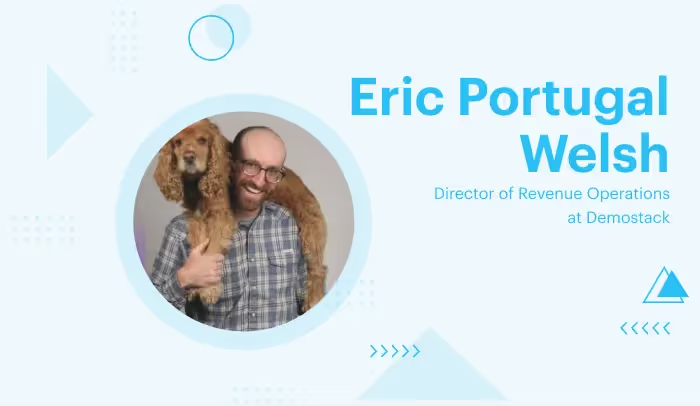One of the best ways I have learnt everything I know about revenue operations is through the experience and recommendations of fellow RevOps professionals and the way they looked at solving problems.
Think about it, all the books you read, podcasts you listen to, videos you watch hold someone else’s experiences as the true premise of the learning.
So, I gathered some priceless words of advice from experts, especially for those in the RevOps function. This is invaluable information that will shield you from the ‘if only I had known’ complexity.
1. Eric Portugal Welsh on hiring RevOps

“Revenue operations must be among the first hires a company makes.
This is because operations is now directly tied to revenue. It can help a company grow quicker, use resources more efficiently, generate more revenue, and retain customers.”
2. Kenny Hsu on sales compensation planning

“As soon as you pay on a metric, that metric will stop being a useful indicator or driver of your business. But will revenues go up? Or did you just swarm your system with valueless activities and flush a bunch of cash down the drain?
As much as you can, pay on revenue, or aspects of revenues... the rest are just managerial challenges that should be managed by your leaders, not through compensation.”
3. Eddie Reynolds on waiting to hire RevOps till the company grows

“When you wait to hire RevOps, that person usually walks into a challenging situation.
They immediately look at the current sales, marketing and service process and see that the Revenue Tech Stack is woefully falling short of supporting it.
They often have to wait a while to train people on the new system, fight resistance to change and for new data to be populated to provide meaningful insights that drive strategy.
Starting out with someone with even just an "operations mentality" can avoid some of these pitfalls. This means someone with the mindset of finding things that don't work and fixing them.”
4. Brandon Redlinger on becoming friends with the CFO

“One of my top tips for RevOps pros: become best friends with the CFO. Align with them on the numbers. Understand how the business works. Bring them the data and back up your findings. Once you get this relationship, your CFO will be your biggest executive ally. Only good things will happen after that.”
5. Michael Maiorano on RevOps being the legislative branch

“Everyone has their own concept of the business value of RevOps. Here's how I think about it.
Rule # 1 of Revenue ops: Finance shouldn't design the system.
Rule # 2 of Revenue ops: Marketing shouldn't design the system.
Rule # 3 of Revenue ops: Sales shouldn't design the system.
RevOps is the set of rules that governs all of them, i.e. the legislative branch.
When we think about headcount for this function, that's the staffer who executes agreed upon priorities, i.e the executive branch.
1. Allocating budget to conflicting priorities based on net value
2. Making decisions on tradeoffs by applying consistent criteria
3. Building the infrastructure that all citizens share
4. Paying out to contributors based on weight lifted
A VP of RevOps should have - largely - a neutral + dealmaking approach.
There are so many conflicting incentives in sales / marketing, so that's why this legislative part of the function is critical.”
6. Amy Kramer on compensating behaviors

"Your comp plan does not need to incentivize behavior.
Limit to 2 or 3 components max focused on top priorities, and use KPIs, contests and spifs to motivate secondary priorities. Certain behaviours like limiting discounting are best driven by business rules vs. managed through the commission plan.
Contests or spifs are a great way to test changes to your commission plan and understand how the incentive will drive the behavior and flush out any unintended side effects.”
7. Sharad Chanana on investing in data integrity

“Early-stage companies are waiting too long to pay attention to the data integrity of deals. They’re not investing time, resources to validate data.
And it’s not a massive investment; they just need to hire the right people with the right experience to validate the data that goes into the systems. “
8. Rachel Nazhand on why RevOps should not own the systems

“Keep systems away from our RevOps team in terms of ownership because RevOps is not Systems Admin. Having a RevOps person solely focused on a system rather than a skillset, felt like a bit of a distraction. We’ve been able to build this luxury department. And, it allows them to be the key stakeholders. It's someone's sole job to take care of profiles, provisioning, de-provisioning, integrations, etc., and make sure it's all running smoothly.
Their job is about speaking the language of the departments they support. So by being in one team, with dotted lines out to their respective departments, they can be diplomats. They can ideally create an experience across the revenue funnel that feels the same both internally and externally.”
Be sure to follow these amazing thought leaders on LinkedIn for more such guidance in RevOps. And, if you'd like to receive actionable and practical insights from us, sign up to our newsletter below.












